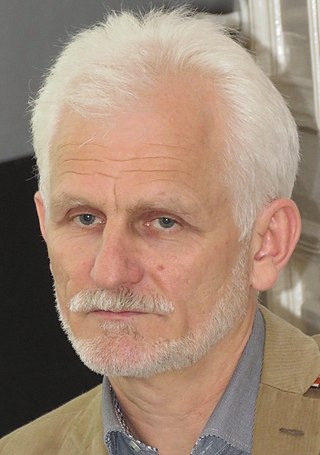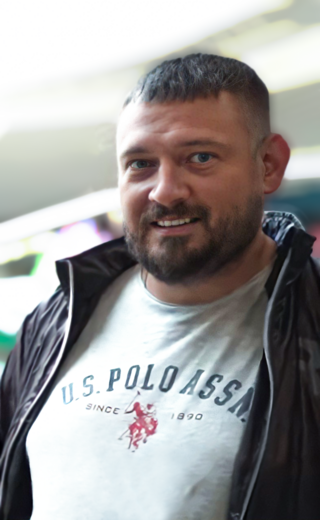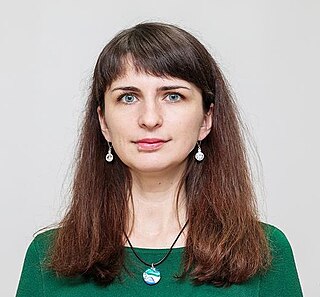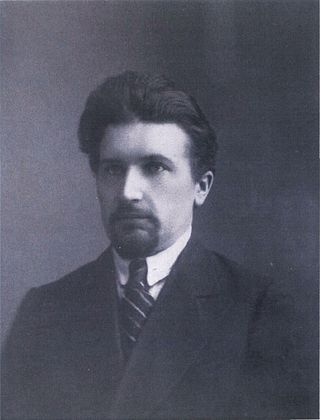
The politics of Belarus takes place in a framework of a presidential republic with a bicameral parliament. The President of Belarus is the head of state. Executive power is nominally exercised by the government, at its top sits a ceremonial prime minister, appointed directly by the President. Legislative power is de jure vested in the bicameral parliament, the National Assembly, however the president may enact decrees that are executed the same way as laws, for undisputed time.

The BPF Party is a banned political party in Belarus. It was de facto established after the split of the social movement Belarusian Popular Front in 1999. The Belarusian Popular Front was founded during the Perestroika era by members of the Belarusian intelligentsia, including Vasil Bykaŭ. Its first and most charismatic leader was Zianon Pazniak.

The Belarusian Social Democratic Party (Assembly) (Belarusian: Беларуская сацыял-дэмакратычная партыя (Грамада́), Łacinka: Biełaruskaja sacyjał-demakratyčeskaja partija (Hromada); Russian: Белорусская социал-демократическая партия (Громада́), romanized: Belarusskaya Social-Demokraticheskaya Partiya (Hromada)) is a banned social-democratic political party in Belarus that opposes the government of president Alexander Lukashenko.

The Conservative Christian Party of the Belarusian People's Front is a former political party in Belarus that opposes the government of president Alexander Lukashenko. It was de facto formed after the split of the Belarusian People's Front in 1999.
Hramada is a Belarusian word that means "gathering of people", i.e., "assembly". Historically a hramada was meant as a peasant commune, which gathered meetings for discussing and resolving current issues.
The Belarusian Peasants' and Workers' Union or the Hramada (Belarusian: Беларуская Сялянска-Работніцкая Грамада, Polish: Białoruska Włościańsko-Robotnicza Hromada was a socialist agrarian political party created in 1925 by a group of Belarusian deputies to the Sejm of the Second Polish Republic that included Branislaw Tarashkyevich, Symon Rak-Michajłoŭski , Piotra Miatła , and the founder of Hramada Pavieł Vałošyn . The group received logistical help from the Soviet Union, and financial aid from the Comintern.

The Belarusian Social Democratic Assembly, commonly shortened to "Hramada" or "The Assembly", is a banned Belarusian social-democratic political party. Businessman Siarhiej Čeračań has been the leader of the party since October 2018.
The Belarusian Socialist Assembly, BSA was a revolutionary party in the Belarusian territory of the Russian Empire. It was established in 1902 as the Belarusian Revolutionary Party, renamed in 1903.

The government of Belarus is criticized for its human rights violations and persecution of non-governmental organisations, independent journalists, national minorities, and opposition politicians. In a testimony to the United States Senate Committee on Foreign Relations, former United States Secretary of State Condoleezza Rice labeled Belarus as one of the world's six "outposts of tyranny". In response, the Belarusian government called the assessment "quite far from reality". During 2020 Belarusian presidential election and protests, the number of political prisoners recognized by Viasna Human Rights Centre rose dramatically to 1062 as of 16 February 2022. Several people died after the use of unlawful and abusive force by law enforcement officials during 2020 protests. According to Amnesty International, the authorities didn't investigate violations during protests but instead harassed those who challenged their version of events. In July 2021, the authorities launched a campaign against the remaining non-governmental organizations, liquidating at least 270 of them by October, including all previously registered human rights organizations in the country.

The Minsk Detention Center No. 1 or SIZO No. 1, informally known as Volodarka, Belarusian pronunciation: Valadarka (Валадарка), is the central prison of the Republic of Belarus located in Minsk.

MikolaViktaravich Statkevich is a Belarusian lieutenant colonel, politician, and opposition leader who was a presidential candidate at the 2010 Belarusian presidential election. Since 31 May 2020 he is held in prison by Belarusian authorities. Viasna Human Rights Centre recognized him as a political prisoner. On 14 December 2021, Statkevich was sentenced to 14 years in prison.

The Viasna Human Rights Centre is a human rights organization based in Minsk, Belarus. The organization aims to provide financial and legal assistance to political prisoners and their families, and was founded in 1996 by activist Ales Bialatski in response to large-scale repression of demonstrations by the government of Alexander Lukashenko.

Ales Viktaravich Bialiatski is a Belarusian pro-democracy activist and prisoner of conscience known for his work with the Viasna Human Rights Centre. An activist for Belarusian independence and democracy since the early 1980s, Bialiatski is a founding member of Viasna and the Belarusian Popular Front, serving as leader of the latter from 1996 to 1999. He is also a member of the Coordination Council of the Belarusian opposition. He has been called "a pillar of the human rights movement in Eastern Europe" by The New York Times, and recognised as a prominent pro-democracy activist in Belarus.

Slutsk District is a district (raion) of Minsk Region in Belarus. Its administrative center is Slutsk.

Presidential elections were held in Belarus on 11 October 2015. Long-term president Alexander Lukashenko ran for his fifth term in office, having won every presidential election since independence in 1991. He was re-elected with 84% of the vote, according to official figures. The 'against all' option received more votes than any opposition candidate.

Sergei Leonidovich Tikhanovsky, also transliterated as Syarhey Leanidavich Tsikhanouski, is a Belarusian YouTuber, video blogger, dissident and pro-democracy activist. He is considered by Amnesty International to be a prisoner of conscience. He is known primarily for his activism against the government of Belarus's long-serving president, Alexander Lukashenko. In May 2020, he announced his intention of running for the 2020 presidential election, but he was arrested two days after the announcement, and his wife Sviatlana Tsikhanouskaya then ran in place of him as the main rival to Lukashenko in the contested election.

Katsiaryna Anatolewna Barysevich is a Belarusian journalist. She is a staff correspondent for the independent news site Tut.By. She has worked for European Radio for Belarus and other media. She reported on the death of Raman Bandarenka in 2020. She was arrested on November 19, 2020, in Minsk.
Ihar Alyaksandravich Losik is a Belarusian blogger and consultant of the Belarusian section of Radio Free Europe/Radio Liberty. Since June 25, 2020 he has been held in prison by Belarusian authorities. Viasna Human Rights Centre and Amnesty International recognize him as a political prisoner.

ArkadźSmolič was an academic, active participant of the Belarusian independence movement and a victim of Stalin's purges.
Marina Zolotova is a Belarusian journalist, chief editor of Tut.by media outlet since 2004. In 2021 she was arrested under charges of large-scale tax evasion; later political charges were added to her case. She is considered a political prisoner by the European Union, the United States of America, and numerous human rights defenders. On March 17, 2023, she was sentenced to 12 years in prison.














